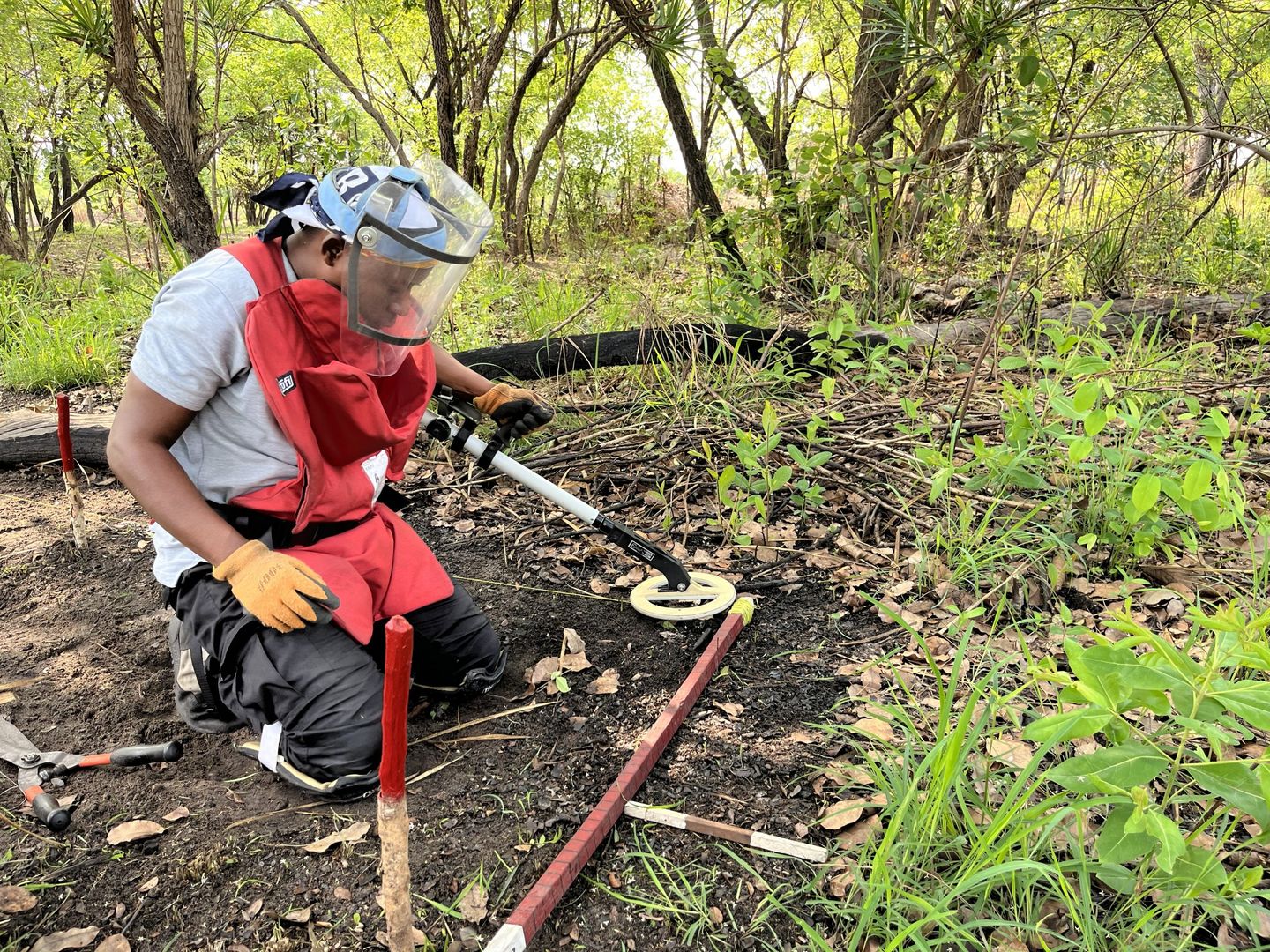The Issue
Two wars in the Democratic Republic of Congo (DRC) in 1996/1997 (First Congo War) and 1998-2003 (Second Congo War), as well as continued fighting between foreign, self-defence, state forces and numerous armed groups have left several of the country’s provinces heavily contaminated with mines and other Explosive Remnants of War (ERW).
Internally Displaced People (IDPs) and people returning to their home areas (returnees) often find that access to agricultural land, hunting and fishing areas, water collection points and roads to other villages has been restricted because of ERW and landmines.
This is only a barrier to the fulfilment of the immediate human needs of returning refugees (returnees) and displaced populations, but also to long-term socioeconomic development in the areas in terms of basic food security, access to health facilities, schools, and infrastructure such as roads and bridges.
Conflict, IDPs, and landmines in DR Congo
The Democratic Republic of Congo (DRC) continues to be embroiled in a complex and protracted crisis following decades of armed conflict, natural disasters, epidemics, and repercussions of Covid-19.
As a result, 27 million people were in need of humanitarian assistance and protection in 2022.
The DRC remains home to the largest population of internally displaced people (IDPs) in Africa, where 5.6 million people have been internally displaced and 900,000 are housed in neighbouring countries as refugees.
Mine contamination limits the movement of people as well as access to water, food, shelter, and health services. Those unfamiliar with the areas they settle in – IDP’s and returnees – are at most risk of getting injured.
The Project
The project will clear mines and other explosives across eight provinces of the DRC – in total, DCA will clear 66,048 m² of contaminated land, conduct 500 Explosive Ordnance Disposal (EODs) call outs, and provide 1,000 Risk Education (RE) sessions.
Furthermore, the project will complete landmine surveys and demining as recommended by the Congolese Mine Action Authorities (CCLAM) in suspected areas that have not yet been surveyed.
DCA is the only international NGO doing Humanitarian Mine Action (HMA) activities in the DRC, and it is key to ensuring that demining activities are completed in the remaining areas of the eight provinces (North Kivu, South Kivu, Ituri, Nord Ubangi, Kasai, Tshuapa, Maniema, and Tanganyika Provinces).
The project will directly benefit approximately 60,000 people.
The Change
The project will save lives and alleviate human suffering caused by mines, Improvised Explosive Devices (IEDs), and Explosive Remnants of War (ERW).
By removing mines and explosives, the project will increase freedom of movement and access to key infrastructure. Demining will create a safer environment for local communities, returnees and IDPs. Released land will be taken up for productive use by communities and thereby contribute to the socio-economic development of the area. This will improve food-security, access to health-facilities, schools, and vital infrastructure.
Lastly, the project is an important contribution to the DRC’s commitments and overall efforts of becoming landmine free by 2025.
Our Work
DCA in DRC focuses on mine clearance and educating communities about the risks of mines and Explosive Remnants of War (ERW) and assisting the internally displaced people, host communities, and refugees through integrated humanitarian assistance and clearance of Explosive Remnants of War.
About this project
Project title: Reducing the risk posed by mines and ERW in DR Congo through Clearance and Risk Education
Period: 1st January 2022 – 31st December 2024 (36 months)
Partner: Actions pour le Développement Intégral par la Conservation Communautaire (ADIC)
Amount: 4,600,000 US Dollars
People reached: 60,000
Donor: Bureau of Political and Military Affairs, Office of Weapons Removal and Abatement (PM/WRA), US Department of State


